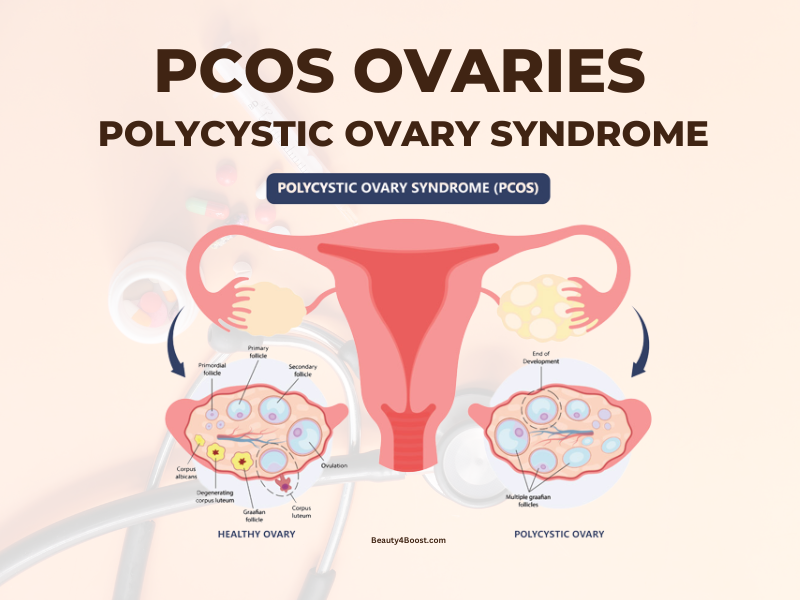PCOS Ovaries: A Comprehensive Guide
If you’re looking for a detailed resource on PCOS ovaries, you’ve come to the right place. This article aims to provide you with a comprehensive understanding of Polycystic Ovary Syndrome (PCOS), covering its symptoms, diagnosis, treatments, and much more. So, let’s delve into the world of PCOS ovaries.
Understanding PCOS Ovaries
Polycystic Ovary Syndrome, often referred to as PCOS, is a common hormonal disorder among women of reproductive age. It is characterized by the presence of small cysts on the ovaries, which can lead to various health issues. Let’s explore this condition further.
Understanding PCOS (Polycystic Ovary Syndrome) requires a closer look at the distinctive characteristics of PCOS ovaries. In individuals with PCOS, the ovaries typically exhibit several key features that distinguish them from ovaries without the condition. One of the most prominent features is the presence of small fluid-filled sacs or follicles, which are commonly referred to as “cysts.”
These cysts are actually immature eggs that have not been released during the menstrual cycle due to irregular ovulation. The accumulation of these undeveloped follicles gives the ovaries a polycystic appearance, though the term “cyst” can be misleading, as these structures are not true cysts.
Another hallmark of PCOS ovaries is the increased production of androgens, which are male hormones. This excess androgen production can contribute to the hormonal imbalances that lead to irregular menstrual cycles and other PCOS symptoms.
The elevated androgen levels can also affect the maturation of eggs and may disrupt the process of ovulation, further contributing to fertility issues. Understanding these structural and hormonal characteristics of PCOS ovaries is crucial in diagnosing and managing the condition, as it helps healthcare professionals develop targeted treatment plans to alleviate symptoms and address fertility concerns for individuals with PCOS.
Symptoms of PCOS
PCOS can manifest through various symptoms, which may vary from person to person. Some common signs and symptoms include:
- Irregular menstrual cycles.
- excessive hair growth.
- Acne and oily skin.
- Weight gain and difficulty losing weight.
- Hair thinning.
- Skin darkening.
- Fatigue.
- Mood swings.
Diagnosing PCOS
Diagnosing PCOS is crucial for effective management. A healthcare provider may consider the following when making a diagnosis:
- Medical history and symptom analysis.
- Physical examination.
- Blood tests to check hormone levels.
- Pelvic ultrasound to examine the ovaries.
PCOS and Fertility
One of the concerns for many women with PCOS is its impact on fertility. PCOS can affect a woman’s ability to conceive due to irregular ovulation. However, with the right treatment and lifestyle changes, many women with PCOS go on to have healthy pregnancies.
Treatments for PCOS
Managing PCOS involves a combination of lifestyle changes, medications, and other therapies. Some common treatments include:
- Lifestyle modifications (diet and exercise).
- Hormonal birth control.
- Insulin-sensitizing medications.
- Fertility treatments.
FAQs
What is the primary cause of PCOS?
PCOS does not have a single known cause, but it is believed to be related to a combination of genetic and environmental factors.
Can PCOS be cured?
While there is no cure for PCOS, its symptoms and complications can be managed effectively with the right treatments.
Is PCOS a life-long condition?
PCOS is a chronic condition, but its impact on an individual’s life can vary over time.
Can women with PCOS have a healthy pregnancy?
Yes, with proper medical guidance and treatment, many women with PCOS can have a healthy pregnancy.
How can I manage my weight with PCOS?
Managing weight with PCOS often involves a balanced diet and regular physical activity. Consulting a healthcare provider is essential for personalized guidance.
Are there any natural remedies for PCOS?
Some women find relief from PCOS symptoms through natural remedies like herbal supplements, but these should be used with caution and under medical supervision.
Conclusion
Polycystic Ovary Syndrome is a complex condition that affects many women worldwide. By understanding its symptoms, diagnosis, and treatment options, you can take control of your health and well-being. Remember, early diagnosis and proactive management are key to living a healthy and fulfilling life with PCOS.




